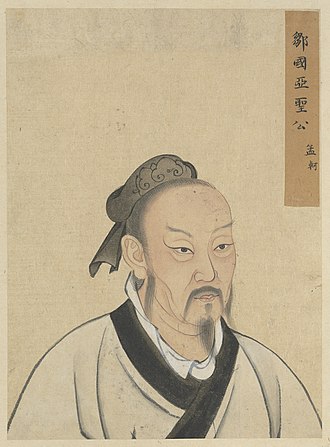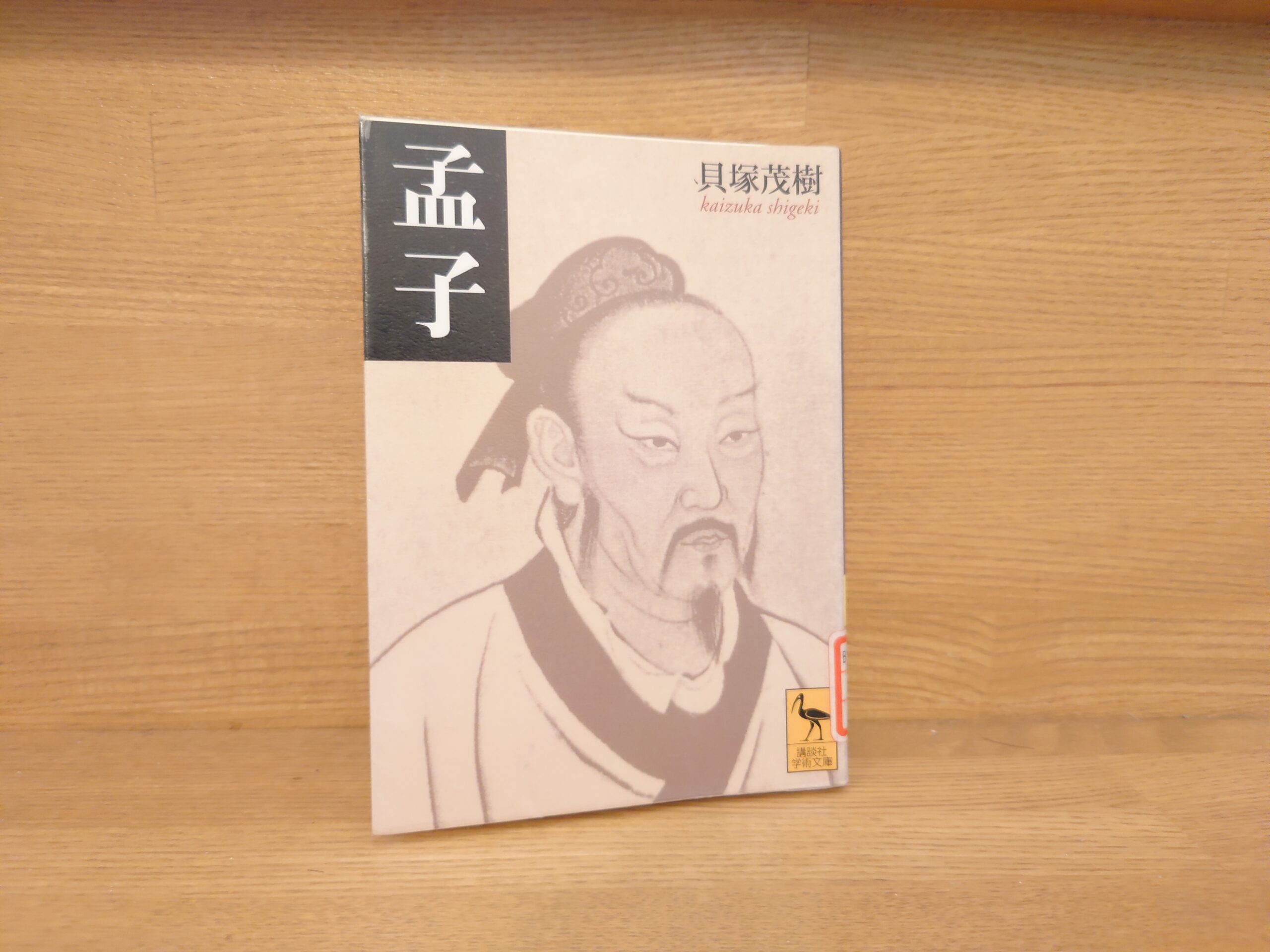Shigeki Kaizuka's "Mencius" Summary and Comments - Recommended for studying the thought of the Confucian sage who advocated a utopian state based on a theory of sexual goodness and benevolent government.
The book introduced here is "Mencius" by Shigeki Kaizuka, published by Kodansha in 2004.
Let's take a quick look at the book.
He is called Kong Meng, a sage alongside the saintly Confucius, and his writings areThe Analects of ConfuciusMencius is considered to be one of the Four Books as well as the Four Books of Mencius. Born in the small country of Zou during the Warring States Period, when the seven powerful states of Wei, Yan, Qi, and others vied for supremacy, Mencius traveled throughout the land and taught what benevolent government was. In this book, the great scholar explains the teachings of the sage, from his proposals for the ideal image of a sovereign, including the essentials of personnel promotion, and his conception of an ideal state, such as the Ida system, to the principles of shugen (discipline) based on his consideration of human nature.
AmazonProducts Page.

I would like to introduce Mencius, a Confucian sage along with Confucius. Mencius is famous for his words, "the theory of sexual goodness" and "the spirit of ho-zen. I remember learning this in my high school ethics class.
But even though I knew the word, I knew little about its deeper meaning, Mencius' life, or the historical context in which his thought was expressed.
This book, "Mencius" will be a work that allows us to take a closer look at his life, thought, and historical background.
The book makes it clear how important the historical background is. It reveals how Mencius did not simply state his theory of sexual goodness in an idealistic manner, but as a persuasive theory in the context of the world of his time. He sells his own theory of sexual goodness to the king as "a policy for governing the country. It is interesting to note that, like Confucius and Lao Tzu, all of Chinese thought is related to the political policies of the country.
However, Mencius' view of the state, based on his views of sexual goodness, was still utopian, and there were some difficulties in actually putting it into practice. Nevertheless, his royal politics was not entirely flowery. The author describes this in the following way.
Mencius explained that it would be difficult for Qi, only one of the nine kingdoms, to unify China by military power alone, and that if the people's lives could be stabilized through the true way of kings, or the royal road, and if foreign people, scholars, merchants, and others could migrate to Qi to hear about its good government, national power would increase and the country would naturally gain an advantage over its enemies and unify the country. If foreign people, scholars, merchants, and other people come to Qi, the national power will increase, and the country will naturally gain the upper hand over its enemies and unify the country.
This royal government may seem utterly fanciful if one reads only the surface of the dialogue. At that time, however, not only scholars and merchants but also peasants were much more mobile than in later times, and when they heard rumors of good government, they often migrated collectively to very distant foreign countries. The ideal of a royal government was formed on the basis of this freedom of collective migration of the people across national borders, and it cannot be dismissed as a fantasy by any stretch of the imagination.
Kodansha, Shigeki Kaizuka, Mencius, p98-99.
I see...now that you put it this way, I can see that Mencius' theory is not entirely fanciful. After all, the historical background is important. It was because of the realities of people's daily lives that the royal government was established.
Other exciting details keep coming up in this book, such as the famous "fifty-fifty" story and Mencius' interesting personality. There is so much interesting stuff here about Mencius that it would be too much of a waste to simply end up at the word level of "sexual goodness" or "hōnen chi". Why not pick up a copy?
The above is "Shigeki Kaizuka's "Mencius" - Recommended for studying the Confucian philosophy that advocated a utopian state based on the theory of sexual goodness and benevolent government.
Next Article.
Click here to read the previous article.
Related Articles





































